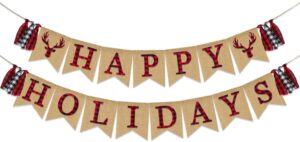
“Meaning-Making Helps Make it Better”
By Clay Hightower, LICSW
One of the most difficult aspects of grief is how limiting the emotional experience can be on my behavior and my thought process. The shock, sadness, and ensuing change that grief requires all culminated in me feeling lost at the end of last year. Not lost in the sense that I did not know what I would do next or how I would be able to cope with it all, but more so that I did not know how expansive the changes would be. My grandmother was the matriarch of my family system. Many of the decisions in my family system, especially around the holiday season, revolved around what my grandmother’s wishes were. She was one of the biggest reasons that I would go home to visit as much as I did, and I know that my cousins did so for the same reason. So, when she passed, not only did I experience her loss, but I could also sense the changing of my family dynamic on the horizon. My whole understanding of my family system was rooted in my grandparents being at the center, and with that now missing, it just did not make sense to me.
Part of what helps to begin making sense of it all again is meaning-making. Meaning-making sometimes takes the well-known form of trying to understand why something happened the way it did, but many times, meaning-making looks more like finding a new way to frame and understand my world after my loss. This became readily apparent to me the longer that I practiced therapy. Seeing clients experience loss and go through that experience helped me to see it with a different perspective. When I would talk with them about their loss, I could see the same shock and sadness. When I would talk with them about who or what they had lost, the conversation seemed to go differently. The sadness was still present, of course, but what would come with it was the history and strength of the relationship. All of the meaning attached would begin to come to the surface in the stories. What would sometimes feel distant and unreachable now became more accessible, as long as they were willing and able to accept the pain that came with it.
My experience has been no different. In the times when I have allowed myself to experience the grief and pain, what comes with it is connection. Part of growing up and becoming a big baseball fan, and more specifically an Atlanta Braves fan, was the result of spending so much time at my grandparents’ home watching games with them and traveling all over the southeast to attend games. It also meant that the Atlanta Braves’ World Series win this year brought with it a tidal wave of sadness and joy. I still cry when I watch the highlights of those games. Part of not celebrating Christmas at my grandparents’ home anymore meant that I would not see the collection of nearly one hundred and fifty reindeer toys and knick-knacks that my grandmother would put out every year. However, when I see a reindeer float, ornament, or toy now, I feel closer to her. Lastly, part of knowing that my grandmother was the “glue” of my family system meant knowing that many of the relationships would change, sometimes drifting further apart. It also meant that I would be able to form stronger relationships with some family members, in part as a result of our loss.
None of these new experiences or meanings help me to not feel the pain and loss. In fact, they require me to feel the pain and loss. They also allow me to hold on to the pieces of the relationship that meant so much to me, and they provide me with a bit of a roadmap through the shock, sadness, and change. When I think of her and miss her, there are specific actions and experiences that I can engage in to feel closer to her. When I am able to stay in these feelings, my relationship with my pain changes. It becomes more accessible with time, and eventually I come to embrace the pain.
With Christmas just around the corner, I know that I am not the only one that wishes to honor the memories of loved ones. I now know how I can do that, and if I need more ways to do it, I have nearly twenty-six years of memories to find meaning in. My hope is that this will help others to find their own meanings in their relationships and to use them to begin to transform the pain.
From all of us at The Moore Institute, we want to wish you a happy holiday season. We are grateful for all of you. We hope that you will join us for the New Years Day Cleanse from 9 AM to 11:30 AM.

